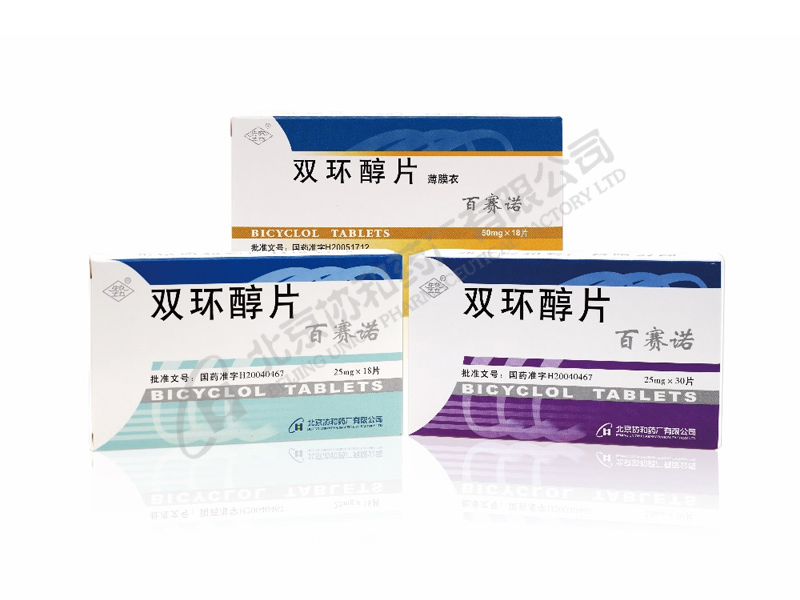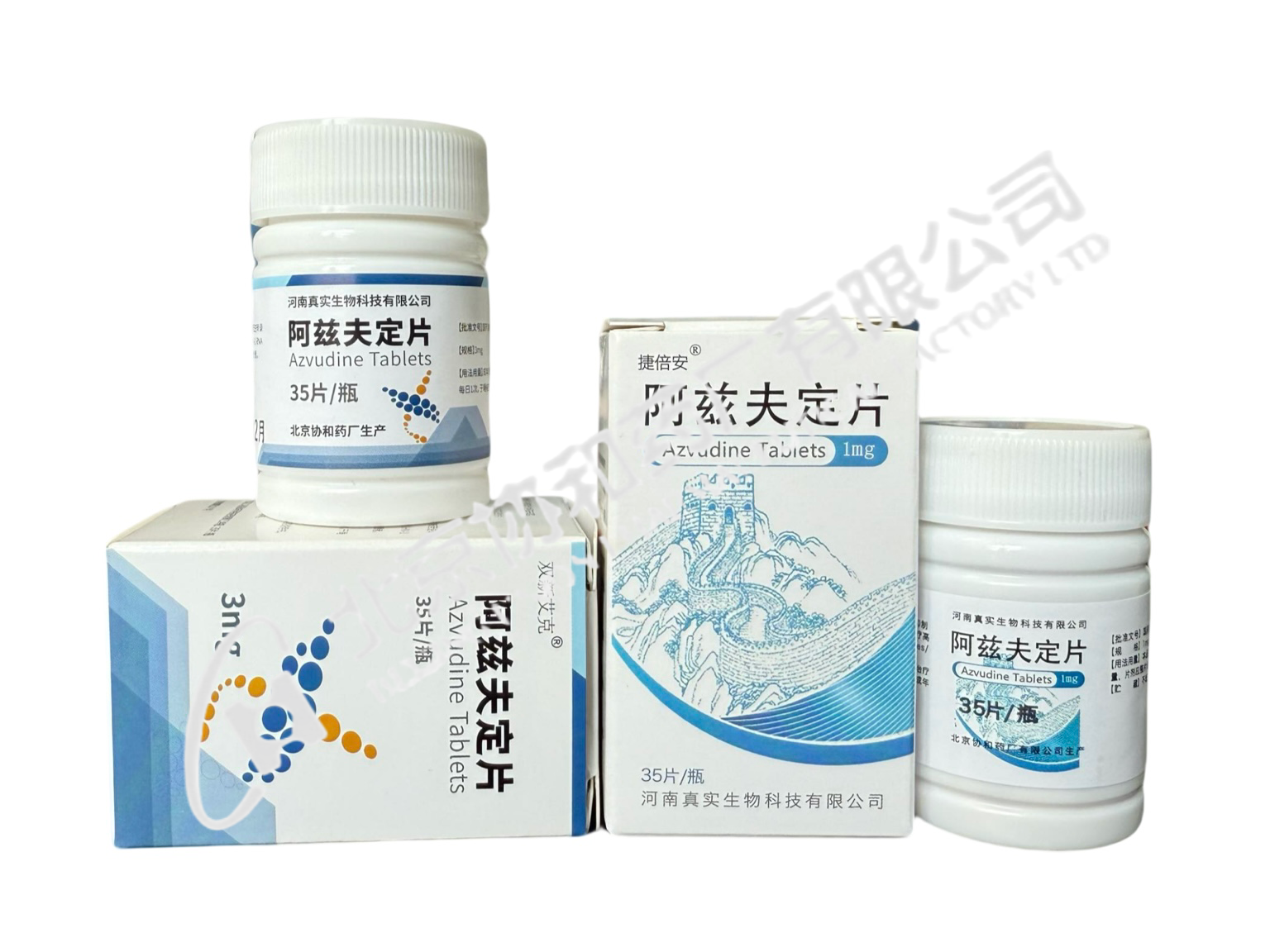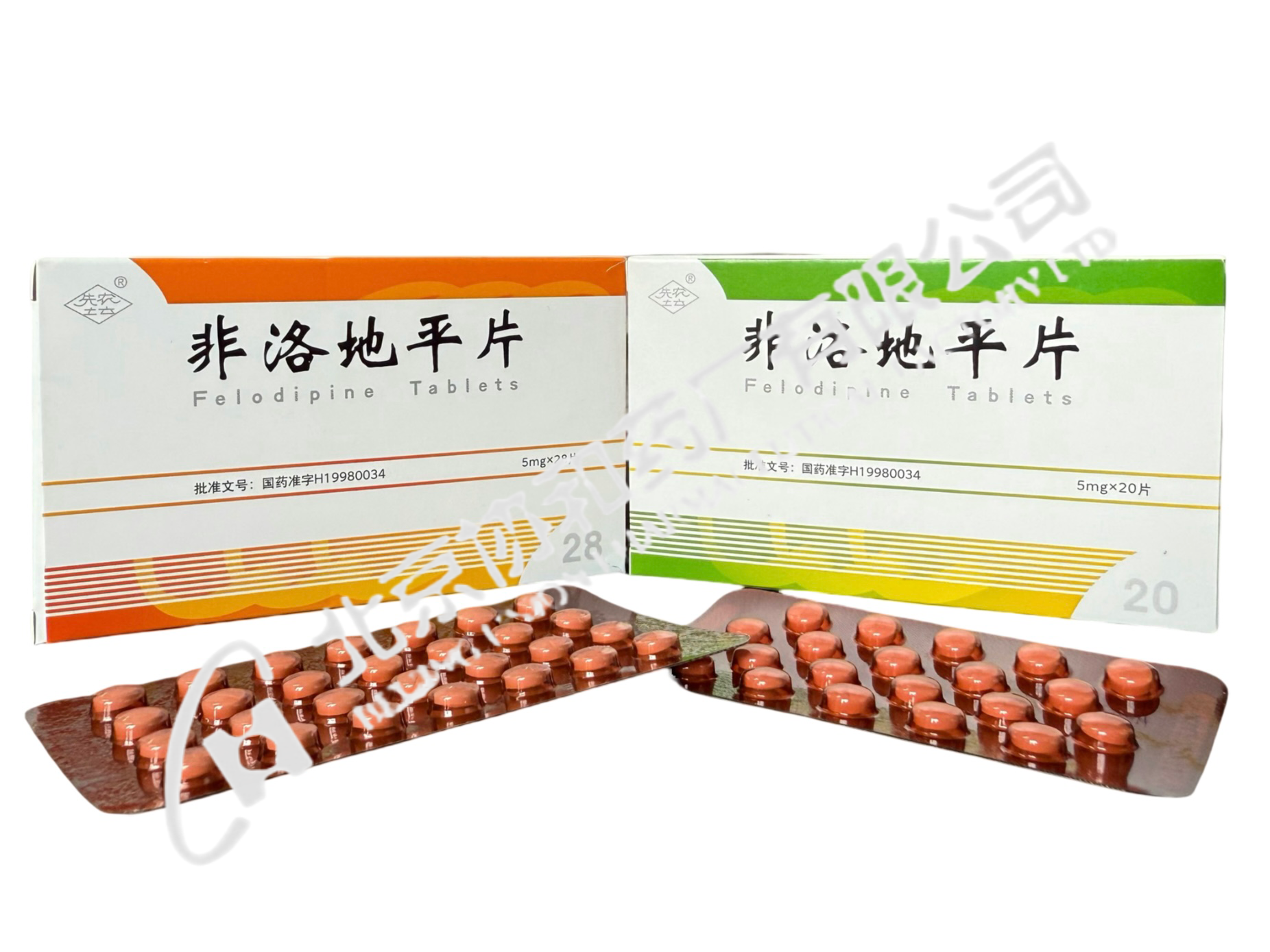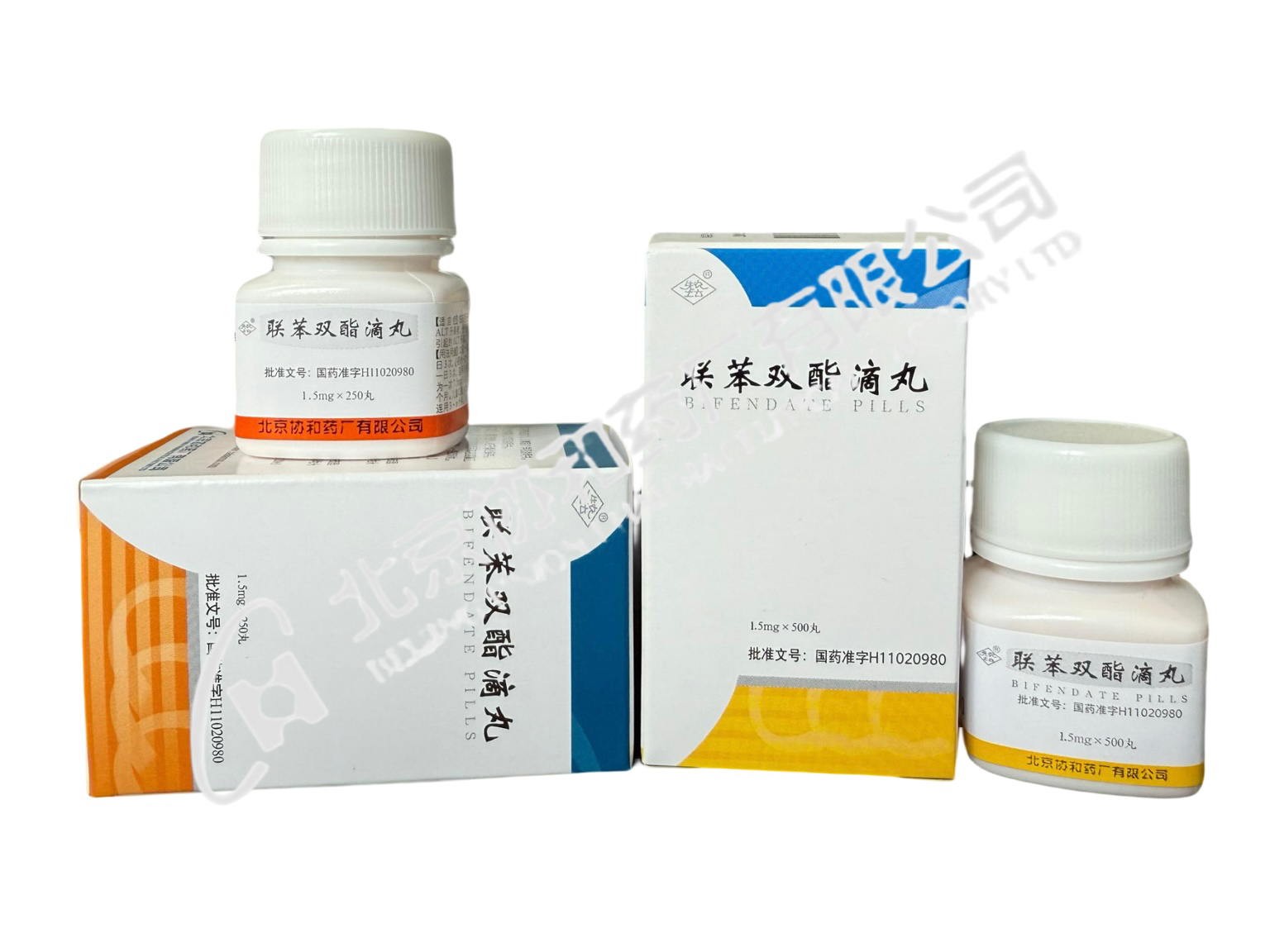Bicyclol Tablets
25mg× 9 tablets, 25mg× 18 tablets, 25mg×30 tablets, 50mg× 18 tablets,
【INDICATIONS】
Used for the treatment of elevated transaminase level resulted from chronic hepatitis.
Bicyclol Tablets (Trade name: Bicyclol®) is a Class 1 chemical drug exclusively produced by Beijing Union Pharmaceutical Factory LTD, which was invented by Academician Liu Gengtao and Researcher Zhang Chunzhen, etc. from the IMM, CAMS. Bicyclol Tablets is used for anti- hepatitis and liver protective treatment in various liver diseases and liver injuries. It has been included in the Volume II of the Pharmacopoeia of the People's Republic of China since 2015.
Related products
0Bicyclol Tablets (Bicyclol®) is a first-in-class chemical drug exclusively produced by Beijing Union Pharmaceutical Factory Ltd, which was invented by Academician Liu Gengtao, and Researcher Zhang Chunzhen, Researcher Li Yan from the IMM, CAMS. Bicyclol Tablets are used for anti-inflammatory and liver protective treatment of a variety of liver diseases and liver injuries., which has been included in 10 editions of the National Basic Medical Insurance Drug Catalogue Since 2004, and has been included in the Pharmacopoeia of PRC since 2015.
The research of Bicyclol obtained supports from projects as the “1035 Project” Innovative Drug Research and Industrial Development, the National High-tech Industry Development, the “Science and Technology to Promote Trade” Action Plan, the National Science and Technology Major Project for “Major New Drug Development”, and the Beijing High-tech Achievement Application, Zhongguancun Major High-end and Cutting-edge Achievement Industrialization. Bicyclol won the National Key Science and Technology Research Program Outstanding Science and Technology Achievement Award, the first prize of Beijing Science and Technology Award in 2005, the second prize of National Science and Technology Progress Award in 2006, and the top ten scientific and technological achievements of the 60th anniversary of the establishment of the CAMS in 2016. BUPF has been authorized 20 invention patents for Bicyclol.
Since marketed, more than 680 academic papers themed Bicyclol have been published at home and abroad (including 102 SCI journals), with in-depth mechanism research, and rich evidence-based proof. Since 2004, Bicyclol Tablets has been included in the National Basic Medical Insurance Drug Catalogue (liver treatment drugs, anti-fatty liver drugs); 70 guideline recommendations and clinical pathways have been included in the Guidelines for the Prevention and Treatment of Chronic Hepatitis B, Guidelines for the Prevention and Treatment of Alcoholic Liver Disease, Guidelines for the Prevention and Treatment of Metabolic-Related Fatty Liver Disease, Guidelines for the Diagnosis and Management of Drug-Induced Liver Injury, and Guidelines for the Diagnosis, Treatment of Primary Liver Cancer, and Guidelines for Diagnosis and Treatment of Tumor Drug Related Liver Injury etc.; it has been compiled into China’s university textbooks of Internal Medicine, Infectious Diseases, and Integrated Traditional Chinese and Western Medicine in Infectious Diseases. In 2024, the Phase III clinical trial for the new indication of Bicyclol will complete the enrollment of cases. The Chronic Disease Management Branch of the China Pharmaceutical Biotechnology Association issued the Multidisciplinary Expert Consensus on the Bicyclol in Prevention and Treatment of Liver Inflammatory Injury, and put forward 15 recommendations.
With its excellent safety and efficacy, Bicyclol has been in the leading position in China’s oral liver protection drug market in recent years, and has been listed on the “Chinese Pharmaceutical Brand List” of Menet for seven times. Bicyclol has also been registered and marketed in multiple countries along the “Belt and Road” such as Ukraine, Uzbekistan, and Russia and has formed a certain scale. It has obtained the GMP certification of the Ukraine SMDC, a member of the PIC/S, and the GMP certification of the Russian MoIT, expanding the channel for China’s innovative drugs to “go global”.










